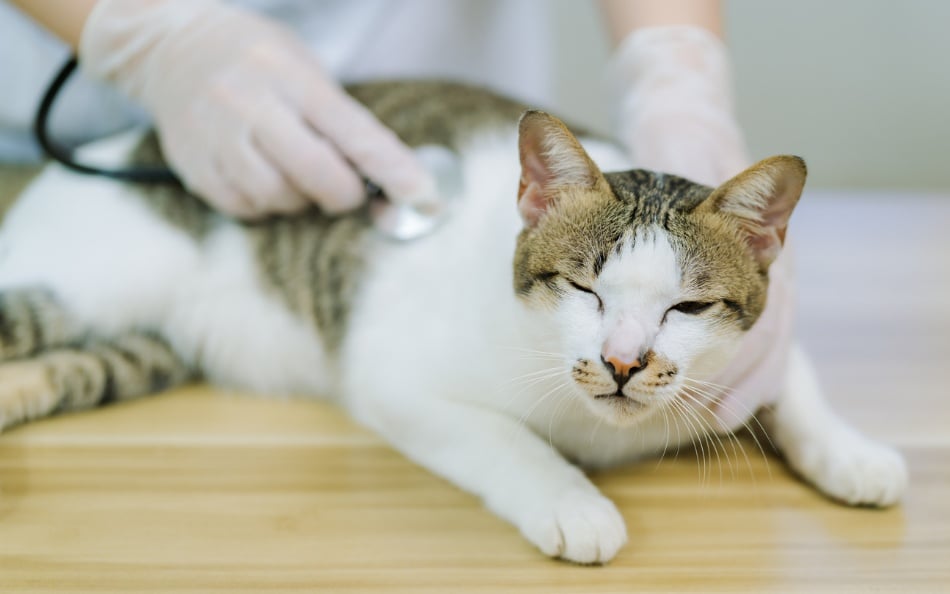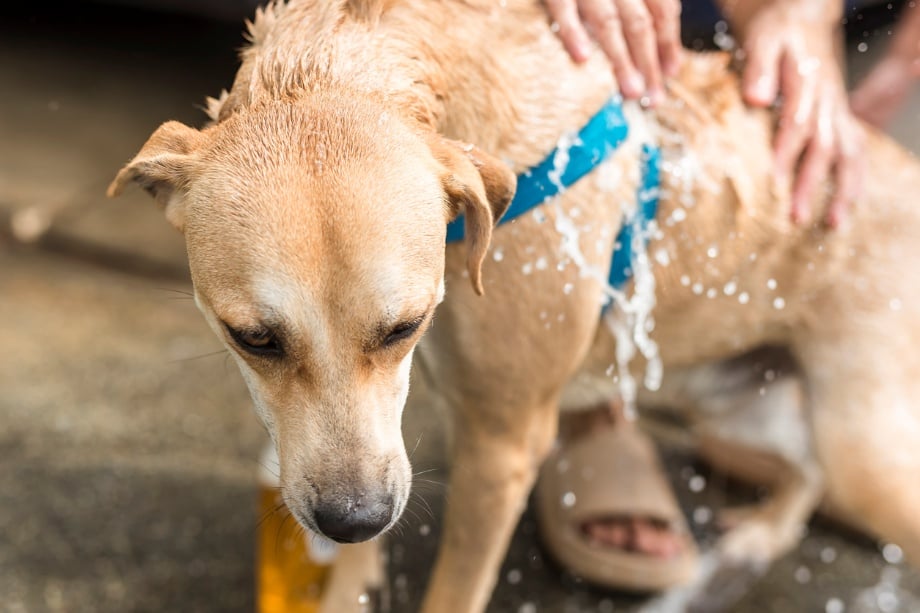As spring flowers bloom and the weather warms up in Cedar Falls, it is not just humans who may suffer from seasonal allergies. Pets can also experience allergic reactions that affect their skin, coat, and overall well-being. May is Pet Allergy Awareness Month, making it the perfect time to learn about the signs of allergies in pets and how we can help manage and treat them.
Types of Pet Allergies

Understanding the source of your pet's allergy is key to effective treatment. There are three primary types of allergies in pets:
1. Environmental Allergies (Atopy):
Airborne particles like pollen, dust mites, mold spores, and grass cause these pet allergies. Depending on the allergen, they are often seasonal but can also occur year-round. Pets with atopy usually begin showing signs between one and three years of age. It is a lifelong condition that worsens over time if not managed.
2. Flea Allergy Dermatitis (FAD):
Flea allergies occur when a pet has a hypersensitive reaction to flea saliva. Even a single flea bite can cause intense itching and discomfort. This type of allergy is prevalent in both cats and dogs and can lead to severe skin irritation, particularly around the base of the tail, lower back, and inner thighs. Preventative flea control is the best way to avoid flare-ups.
3. Food Allergies:
Food allergies develop when a pet’s immune system reacts to a specific ingredient in their diet, most often a protein such as chicken, beef, dairy, or eggs. These allergies can cause chronic ear infections, skin problems, and sometimes gastrointestinal symptoms like vomiting or diarrhea. Food allergies are not the same as food intolerances, which typically cause digestive issues but not immune reactions.
Some pets may suffer from more than one type of allergy simultaneously, making diagnosis and treatment more complex.
Pet Allergy Awareness: Common Signs to Watch For
Allergies in pets can manifest in a variety of ways. Unlike people who tend to sneeze or have watery eyes in response to allergens, pets typically show their discomfort through their skin and behavior. During Pet Allergy Awareness Month, we encourage pet owners to watch for these common signs and seek veterinary care early:
- Excessive Scratching or Licking: One of the most common symptoms of pet allergies. You may notice your pet constantly scratching certain areas, licking their paws, or chewing on their skin.
- Red, Inflamed, or Irritated Skin: Allergies can cause inflammation and redness, particularly in areas like the belly, armpits, paws, and around the ears or face.
- Frequent Ear Infections: Repeated ear infections, especially in dogs, can indicate underlying allergies. You may notice head shaking, scratching at the ears, or an unpleasant odor.
- Hair Loss or Bald Spots: Constant licking and scratching can damage the skin and lead to patches of missing fur or even open sores.
- Hot Spots: These are painful, infected areas of skin that result from self-trauma. They often appear suddenly and can become severe if not treated.
- Watery Eyes or Nasal Discharge: Although less common than skin symptoms, some pets may have runny eyes or noses due to environmental allergens.
- Scooting or Chewing at the Rear: This can sometimes be a sign of a food allergy or skin irritation around the anal area.
Because many of these signs overlap with other conditions, a veterinary diagnosis is essential to determine whether allergies are the cause.
Diagnosis and Treatment

Identifying the cause of a pet's allergy can be a detailed process. At Advanced Pet Care Clinic, we begin with a thorough physical exam and medical history to evaluate your pet’s symptoms and lifestyle. We also have a state-of-the-art in-house laboratory which gives us rapid and accurate diagnoses. Based on your pet’s clinical signs, we may recommend the following diagnostic steps:
- Skin Scrapings or Cytology: To check for secondary infections or other skin conditions that may mimic allergies.
- Allergy Testing: Blood tests or intradermal skin testing can help identify environmental allergens.
- Flea Comb Examination: To check for evidence of flea activity.
- Food Elimination Trial: This involves feeding a prescription or limited-ingredient diet for 8–12 weeks to identify potential food allergens. It is the most reliable method for diagnosing food allergies.
Once the allergen is identified or narrowed down, treatment can begin. Treatment for pet allergies is highly individualized and may include:
- Medications: Antihistamines, corticosteroids, or newer allergy medications like Apoquel or Cytopoint can help control itching and inflammation.
- Topical Therapies: Medicated shampoos, sprays, and conditioners can soothe irritated skin and help remove allergens from the coat.
- Allergen-Specific Immunotherapy: Also known as allergy shots or drops, this long-term treatment works by gradually desensitizing your pet to the allergens causing the reaction.
- Flea Control: A consistent flea prevention program is essential, especially for pets with flea allergies.
- Dietary Changes: We recommend a long-term hypoallergenic or novel-protein diet if food allergies are involved.
- Grooming: In addition to medications, topical therapies, and dietary adjustments, regular grooming can help manage pet allergies by keeping your pet’s skin clean and free from allergens. Our grooming team at Advanced Pet Care Clinic provides allergy-friendly grooming services to support your pet’s care plan. Discover our grooming options here.
Managing pet allergies often requires ongoing care and regular check-ins to monitor progress and adjust treatment as needed.
Helping Your Pet Stay Comfortable

There are also steps you can take at home to reduce allergens and support your pet’s comfort:
- Bathe your pet regularly with a recommended, hypoallergenic shampoo
- Wipe down your pet’s paws and coat after walks to remove outdoor allergens
- Wash your pet’s bedding and toys weekly in hot water
- Use a high-efficiency particulate air (HEPA) filter in your home
- Vacuum carpets and furniture regularly
- Maintain a year-round flea prevention plan
We Are Here to Help

This May, during Pet Allergy Awareness Month, let Advanced Pet Care Clinic in Cedar Falls help you identify and manage pet allergies, so your furry friend can stay comfortable and itch-free. If you suspect your pet has allergies or if you have questions about symptoms, do not hesitate to contact us. Let us work together to keep your furry family members healthy, happy, and itch-free this allergy season.
Advanced Pet Care Clinic
4507 Algonquin Drive, Suite A
Cedar Falls, IA 50613
(319) 220-5926
[email protected]

